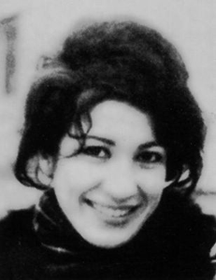 Farrokhzad and The House is Black By Jason Price.
Farrokhzad and The House is Black By Jason Price.In it Price writes about an interview with Kiarostami which carried an amendment "that caught my attention and which I still remember, he wrote: "Taste of Cherry solidifies Kiarostami's position as the most important filmmaker working today. In art-cinema terms (though Americans don't know it yet) we are living in the age of Kiarostami, as we once did in the Age of Goddard". For those not into sixties passions, Jean-Luc Godard was a leading figure in French New Wave cinema renowned for his political engagements and cinema radicalism .Godard tried to apply Bertolt Brecht's theories of theatre to the screen.
He was also very much an in vogue figure among the sixties left.
But hey! the analogy is well made and to understand it you really have to watch some of the cinema of Kiarostami especially(see full list):
Taste of CherryNeedless to say, as I've written here before, I think Kiarostami is the bee's knees.
The Wind Will Carry Us
Ten
10 on Ten
Anyway, my passions aside, Price's essay introduces us to a precursor of Kiarostami -- the Iranian poet and film maker, Forough Farrokhzad (pictured top right).
I haven't caught up with as much of Foroogh as I'd like to but I've been chasing down a copy of her 1962 documentary film The House is Black. There is a simply terrible print of it on Google Video. However there is a sample clip on YouTube which I've embedded below:
It's not a nice topic -- leprosy -- especially to watch, but consider how Foroogh has chosen to represent the lives of these sufferers. If you know your Kiarostami you can see the relationship between the two film makers -- something which, given Foroogh's reputation in Iran, has a potent political quotient.
I realize that many people won't 'get' Kiarostami's significance nor the harbinger to his work that is in the cinema and poetry of Forough Farrokhzad. But Price's essay, although pretentious in places, charts the significance at stake very well indeed.
And if you haven't taken in any Iranian cinema -- you don't know what you are missing. My 18 year old son has one absolutely favorite movie --Marjane Satrapi's Persopolis.-- another film from Iran.
So there's only one thing more to say:Iran rocks!
